Ruchira picks the brain of Dr. Mohua Banerji, a faculty at the Mathematics and Statistics Department, IIT Kanpur. She is also an exponent of Rabindra Sangeet. Here’s her candid interview with Different Truths. An exclusive.

At a cursory glance she comes across as the girl-next- door. Modest, soft-spoken, and amiable; a head full of curly hair and a naughty smile to boot. But browsing through her credentials, you realise that she is a faculty member at one of the country’s premier institutes for higher education. Another surprise awaits you, as you discover her musical talent. Her’s is a familiar voice in the genre of Rabindra Sangeet.
Her work has led her to crisscross the globe umpteen number of times. Married to a fellow professor, Dr Mohua Banerji a hardcore-Calcuttan has made IIT Kanpur her home for nearly three decades now. A feisty feminist-cum-social activist, Mohua has her fingers in several pies. But she handles all tasks with equal élan. She candidly airs her views during an interview with Different Truths.

Ruchira: Please tell us about your early years, family background, education, etc.

Mohua: I come from a modest family background. My father rose from a clerical position to be a manager in the General Insurance Company. My mother had to compromise on her academic career due to my grandfather’s sudden demise – she was forced to take up the job of a teacher to bring up her younger siblings. Despite the odds, she rose to become a renowned headmistress of a primary school in Howrah, West Bengal. However, as is usual with women of our country, she gave up this career as well, to be with my father during his various assignments around the country. My parents’ priority was to give my brother and me the best of education, wherever my father was posted.
My primary school education was at the Summer Fields School, New Delhi; my middle school was at the St. Joseph’s Convent, Patna and high school at the Ashok Hall Girls’, Kolkata. My father’s last posting was in Kolkata. So, the rest of my studies were carried out there. I did my graduation with honours in Mathematics at the Lady Brabourne College, and my post-graduation and Ph.D. in Pure Mathematics at the Ballygunge Science College, University of Calcutta. Subsequently, I had a stint as a post-doctoral fellow at the Indian Statistical Institute, Kolkata, before moving on to become a faculty in the Department of Mathematics and Statistics at the Indian Institute of Technology (IIT) Kanpur.
My parents led a life of simplicity, adjusting themselves to hardships with remarkable grace. My mother excelled in several fields: she was an elocutor specialising in reciting Tagore’s poetry. She was a poet, a painter, designer, dressmaker and knitter, and a chef innovating delectable items. She also had great leadership qualities. My father, behind the façade of a manager in an insurance company, was a poetry, theatre, and cinema buff. He was a writer too. And he would often pen critiques in a flowing style that was unique to him. He wrote the scripts for my directorial ventures on Tagore’s musical and dance dramas. Both my parents were diehard ‘Tagoreans’. There would be animated discussions on cultural events or Tagore’s compositions at home, and a routine playing of Rabindra Sangeet along with critical appreciations of performances by different artists.
On the other hand, my brother brought home a fresh breeze, in the form of western music. We would all go together to attend any music program of note – whether at the crack of dawn or midnight, in rain or shine. In sum, music seeped into my being as I was growing up.

Ruchira: What inspired you to choose mathematics for higher education?

Mohua: I did well in the subject at school, for which I must thank my father and my teachers. After that, it seemed like a natural choice to take up the subject for higher studies. At both college and university, I found wonderful mentors who inspired me to get into an academic profession centering around mathematics.

Ruchira: Please describe your passionate romance with music. How and when did it begin?

Mohua: As I have said, music was a part of my growing up. My mother, being an artist to the core, recognised an artist in me too. When I was five-year-old, she got me started on training in classical dance and music. This was in Patna. I was fortunate to have Deb Kumar Mukhopadhyay as my first Guru. He inculcated in me the first formal sense of music, with a lot of love and encouragement. After we moved to Kolkata, my mother ensured that I continue to be under the tutelage of the best of Gurus. I was privileged to be trained by two stalwarts in Rabindra Sangeet, Arghya Sen, and in Hindustani classical vocal, by Pandit Biresh Roy. All credits for any musical abilities that I may have go to my revered Gurus.

Ruchira: Would you say there exists a harmonious link between math and music which appear to be so starkly different?

Mohua: Certainly. I believe, as many others passionate about the subject do, that mathematics is essentially an art form. As is the case when immersed in a performance or during the composition of an art piece, the mind shuts out the outer world when one is visualising a mathematical theorem or formalising its proof! Besides, there is a good amount of (continuing) research on connections between mathematics and art (in particular, music). The area I work in, viz. mathematical logic, manifests itself in Bach’s fugues for instance, as well as in the ingenious sketches and paintings by Escher.

Ruchira: Please tell us about your musical journey, training, performances at various fora, television channels and other public performances.

Mohua: I successfully cleared exams conducted by a reputed music academy of the country, both in Hindustani classical vocal and Rabindra Sangeet. I bagged a few awards in competitions of Rabindra Sangeet at different forums (college, university, and others). I have given numerous Rabindra Sangeet recitals in India (Kolkata, Visva-Bharati, New Delhi, Mumbai, Kanpur) and abroad (Germany, Canada, The Netherlands, Bangladesh). I have published an album ‘Nitya deoa phuraena je’ under the ‘Ananyo Music’ label. On television, I was featured in the one-hour music programme ‘Aaj Sakaler Amantrone’ of Tara Muzic TV. I have directed several Rabindra Sangeet programmes (musicals and dance-drama) over the years, e.g., by the Russian Youth Choir (at the Gorky Sadan) and other groups in Kolkata, and by our music group Bodhi of IIT Kanpur. I gratefully acknowledge the kind support and opportunities given to me in my musical pursuits by my Ph.D. advisor Prof. Mihir K. Chakraborty, eminent poetess Namita Chaudhuri and their organisation, Nandimukh Samsad.
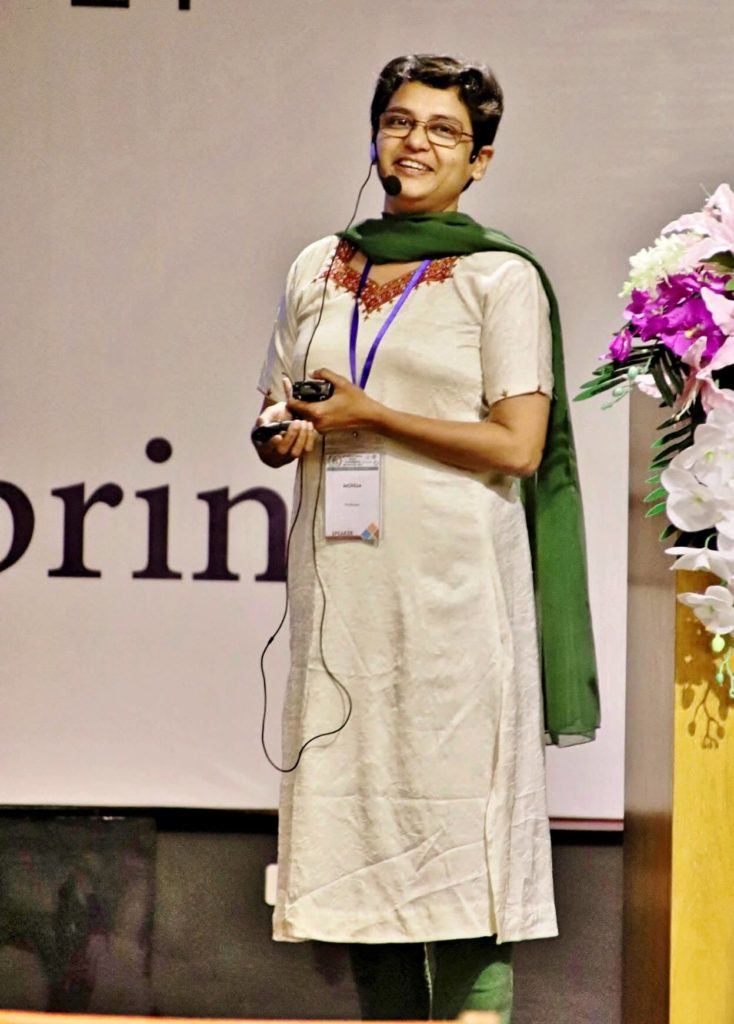

Ruchira: What is mathematics for you?

Mohua: A part of me, and what I turn to, when I seek focus.

Ruchira: What is music for you?

Mohua: A source for inner peace. The slower instrumental compositions in both Hindustani and western classical music especially soothe me. Tagore’s compositions, Rabindra Sangeet, are another story. They are a revelation every time I read or sing them. I thank my father who taught me to savour every word of the compositions and elicit different interpretations through my renderings. Moreover, my training in classical music enables me to appreciate the extremely intelligent use of musical notes by Tagore, for drawing out the essence of the words in his compositions. My time with Rabindra Sangeet gives me an intellectual stimulus, apart from challenging me as a singer.

Ruchira: Please shed light on your brainchild Bodhi. When and how did it come about?

Mohua: I thank my husband Saumyen, for the birth of Bodhi. A music program on 100 years of Tagore’s Gitanjali was being planned on a huge scale, with 1000 singers from all over the country to take part, performing select songs from Gitanjali. The program was to be held live, at Netaji Indoor Stadium, Kolkata. Arundhati Deb of Kolkata was scouting for groups in different cities of the country who would be willing to participate. Bibha Sengupta, a renowned exponent of Rabindra Sangeet, had heard (of) my performances and called me to ask if I could participate in the programme and lead a group from Kanpur. Thus far, I had only sung solo, and had not taught or was not connected to any group of singers. Saumyen encouraged me to give it a shot. And I was pleasantly surprised to get several responses – from faculty members, students, and others on campus. We formed Bodhi. After the programme in July 2015, the group members wanted to continue. Thus began the next chapter of Bodhi – a more long-term involvement of the members for learning Rabindra Sangeet. Since then, we have staged public programmes every year (except the last pandemic year). Some of these are our adaptations of Tagore’s musicals, and the other representations researched and scripted by our members, bringing forth some fascinating facets of Tagore’s creations. A special endeavour has been to communicate with the non-Bengali audience – the presentations have all had English translations projected during the programmes. One can find more on Bodhi’s programs at https://bodhiiitk.wixsite.com/bodhiatiitkanpur

Ruchira: Your mother has been your pillar of strength, your source of inspiration. Please enumerate your mutual ties.

Mohua: Being brilliant herself, my mother was a hard taskmaster, insisting on perfection from me as well. She would help me prepare for my music performances. She was also a stern critic, helping me recognise my flaws, and inspiring me to strive more. My father was a pillar of strength to me too, contributing in his own quiet and cerebral way, to make me the person I am today. Subconsciously, I have also tried to imbibe the extraordinary interpersonal skills of my parents. Despite their day-to-day struggles during my formative years, I remember being amazed at the kindness both emitted, inspiring all around them. Their lives and love have instilled in me a willpower and determination, with which I try to brave crises and pursue my goals.
It is my good fortune to get in contact with my husband Saumyen, a partner who also inspires me through his numerous qualities, depth of knowledge and strength of character. We share a passion for music, and after my parents, he is my constant support and critic in all my musical endeavours. He also actively participates in the research and in penning the English script for the presentations of Bodhi.

Ruchira: Your work has taken you to various places around the globe. How does it feel to be a globetrotter?

Mohua: Well, one cannot really call me globetrotter, but my travels have been exciting indeed. Going through countries alone, visiting place after place with a map in hand – it’s all been thoroughly enjoyable. A peek into the variety of cultures during my trips has been quite educational too.

Ruchira: You champion several social causes. Please shed light on them.

Mohua: Formally, I have been active on a forum that focuses on women’s rights. IIT Kanpur put me in charge of its Women’s Cell, to formulate policies and suggest measures to ensure a gender sensitive and non-discriminatory environment on campus, free from sexual harassment. The three-and-a-half-year of working for the Cell was an enlightening experience, to say the least. We put in place several policies and measures, some of which are the first of their kind in the country.
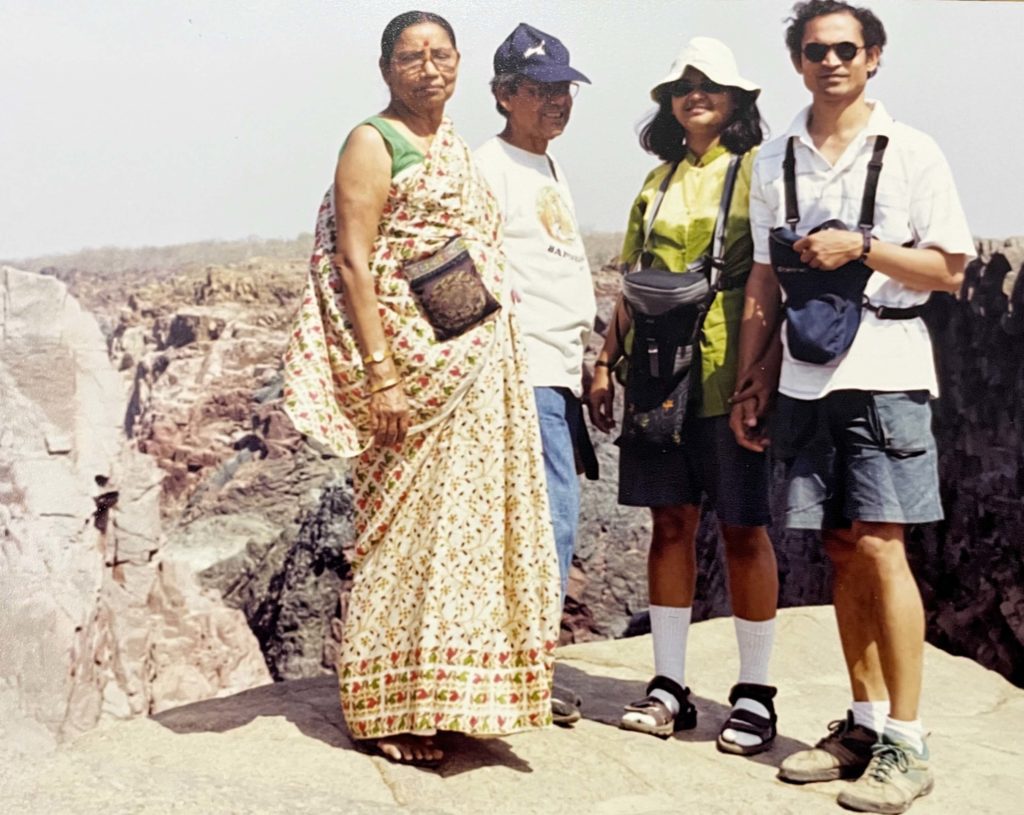

Ruchira: Do you consider yourself a feminist?

Mohua: “Feminist” is likely to be one of the most abused words in English! Yes, I am one, but I must clarify the meaning. I believe that, for the benefit of society, we must strive for socio-economic equality of women. In that, I am a socialist feminist. At the same time, I believe in “a woman’s body, a woman’s right”, that is, I respect freedom and choice with responsibility. So, in that sense, I am an individualist feminist. That said, as I have espoused while chairing the Women’s Cell of IIT Kanpur, we require the efforts of all, irrespective of gender, to achieve these. It is not a one-upmanship between the genders.

Ruchira: Your views on women empowerment. Lots of things are being done. What more remains to be done?

Mohua: “Empowerment” is for those that are weaker than the rest in some sense or other. As the statistics show glaringly, acts related to sexual harassment of and discrimination against women in different walks of life, are overwhelmingly many. This is the reason why there have had to be special laws enacted in the country terming these acts criminal – in the hope to deter potential offenders. But mindsets are most difficult to change, being set over generations, spanning hundreds of years. However, one does see more and more women stepping into domains where one had not dreamt of seeing them even some years ago. We must acknowledge that these achievements could not have been brought about totally by the laws; they have come after years of struggle by some gritty women, with support and encouragement, in several cases, by men. They are our role models, inspiring us to continue the struggle, and communicate hope and strength to the next generation of women and men

Ruchira: You have a chequered and interesting career/life. Any regrets?

Mohua: I have felt sometimes that I could have given more time to my music. But all said and done, I am not a professional musician. My music is finally to indulge myself, and in response to ardent listeners of mine that I have been fortunate to have – such as my immediate family, and others close to me. Though difficult, I would like to follow in the footsteps of my father – he believed in moving ahead, while learning from, but not brooding over, the past.

Ruchira: You will possibly relocate to Kolkata, West Bengal, after your retirement. What are your plans for the future of Bodhi?

Mohua: Frankly, I haven’t given this any thought, as yet – so I have no idea! The pandemic and my father’s passing had led to a full stop in our Bodhi weekly meetings for a few months. But the passion of our members led to resuming the meetings online. Teaching music online is a challenge, and I am enjoying it! So… let the future take its own course.
Photos from Dr. Mohua Banerji and image by Different Truths

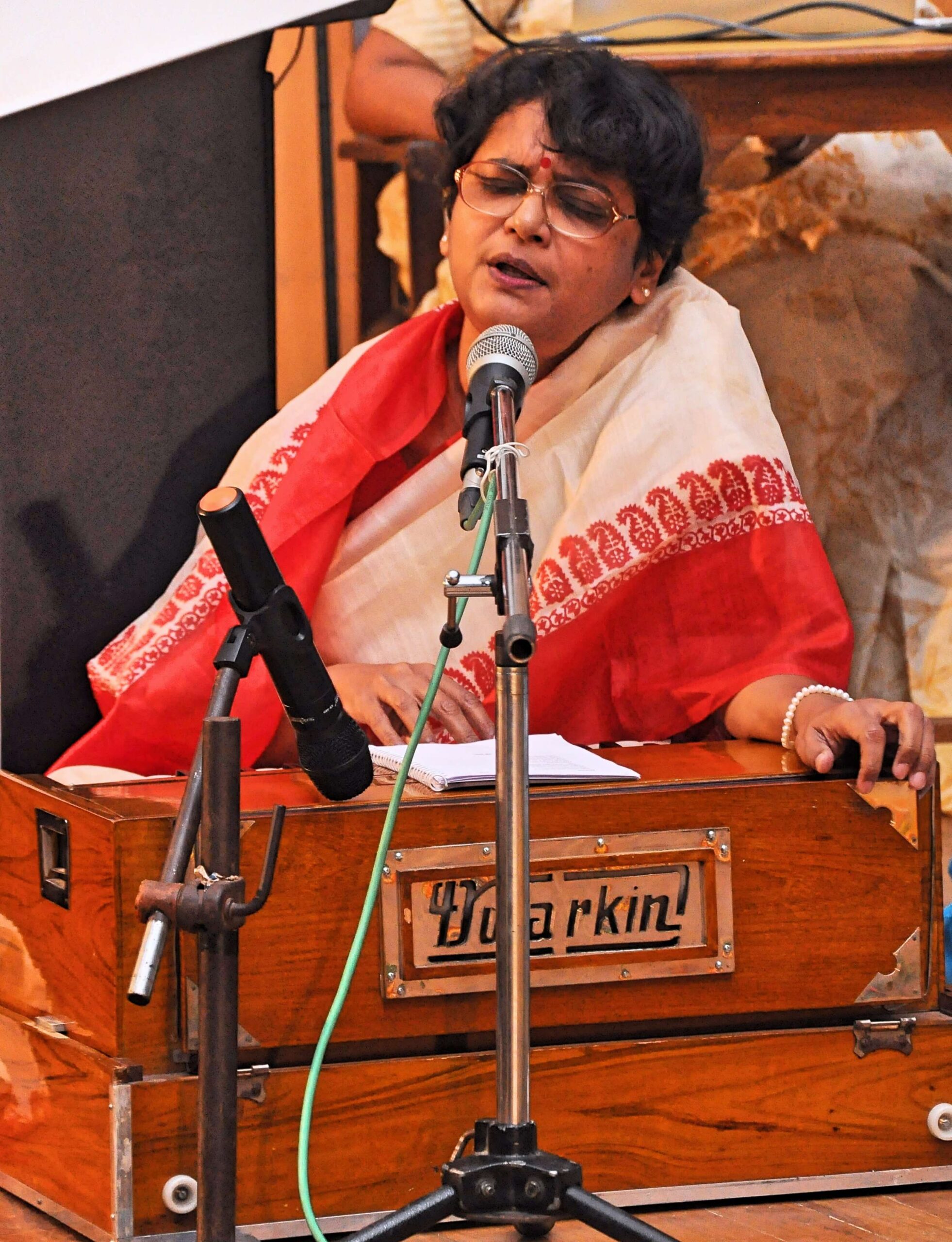


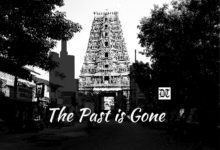
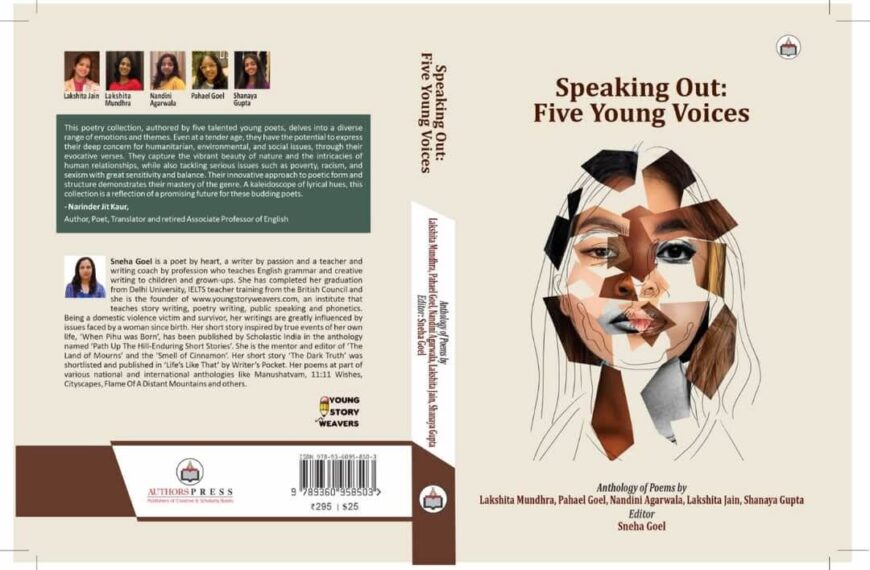
 By
By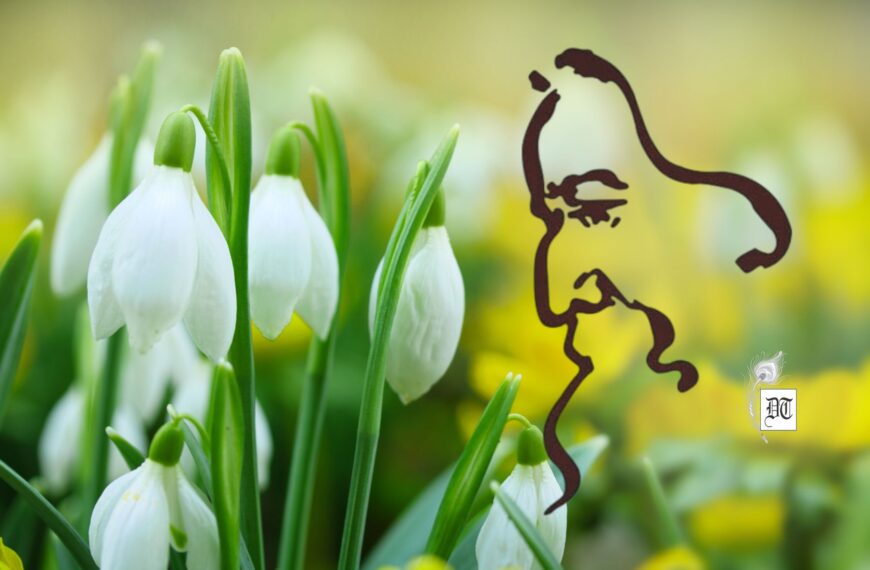
 By
By
 By
By
 By
By